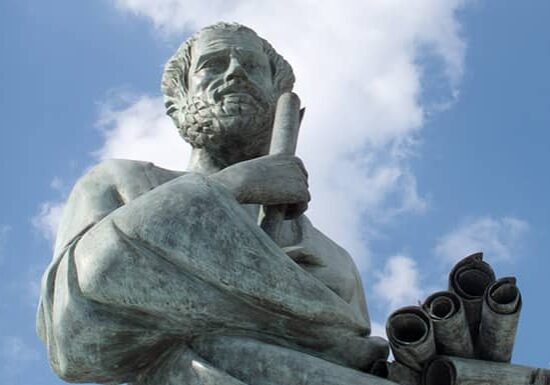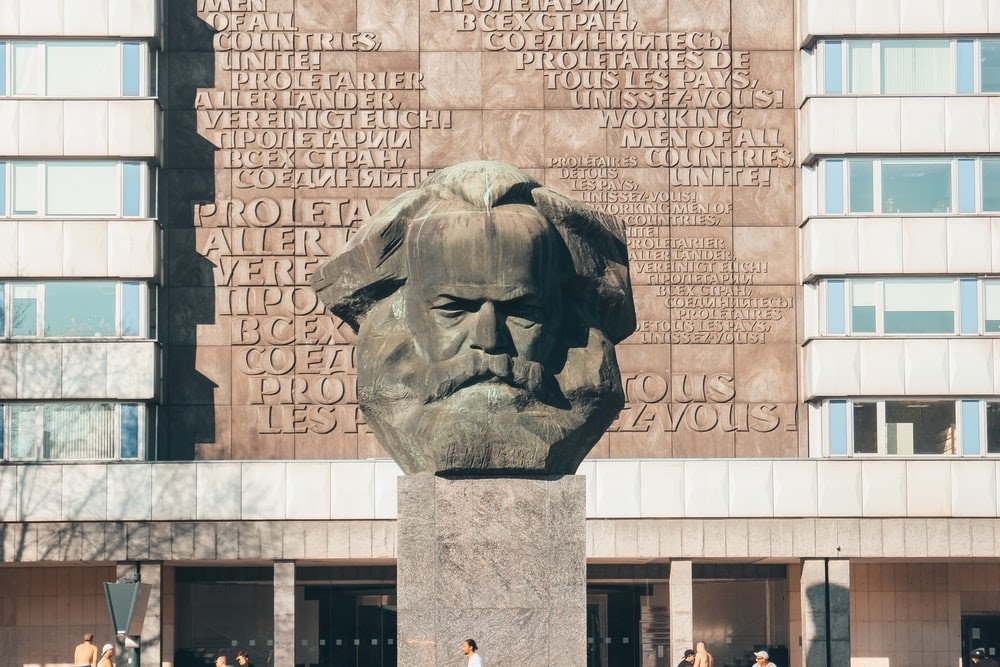10 Greatest Philosophers of All Time
Updated: August 15, 2024
Published: November 25, 2021

Philosophers have been shaping the world and our school of thought for thousands of years and are still very much relevant in our world today. The greatest philosophers of all time have left us with abundant resources that help us understand the human psyche and the world around us. Before we get to some of the most famous philosophers, let’s look at what philosophy entails.
What is Philosophy?
Originating from the Greek words meaning “love of wisdom,” philosophy can be considered the study of knowledge, existence, and reality.
Philosophers’ ideas circulate around ethics, nature, aesthetics, metaphysics, being, logic, knowledge, and theory. Since philosophers take into consideration human existence, their lessons last beyond their time. This is why the teachings of the top ten philosophers still hold true to this day.

Top 10 Greatest Philosophers
Let’s take a look at some memorable teachings and background information about some of the greatest philosophers of all time.
1. Aristotle
Aristotle, one of the most famous Greek philosophers, was also a polymath who lived in Ancient Greece in 384-322 BC. He was taught by another famous philosopher, Plato.
Aristotle is often referred to as the first scientist in history. He is responsible for at least 200 treatises, and approximately 31 of those are still in circulation today. His work focused on disciplines, philosophy of mind through ethics, political theory, aesthetics, and rhetoric, along with non-philosophical works about empirical biology; he was very well known for his theories on plant and animal observation, which were very detailed.
Today, he is most remembered for the first logic, or systematic treatment of principles of correct reasoning, along with identifying the three main methods of rhetoric: ethos (ethics), pathos (emotions), and logos (logic). He also developed the theory of deduction, or as we call it today, syllogism.
2. Lao-Tzu
Lao Tzu developed a theory strongly connected to Taoism. He authored the main book on Taoism around 500 BCE in Ancient China. Taoism focuses on the balance of animals and humans and how they should coexist in the universe.
He also believed in spiritual immortality, in which your soul does not die but instead becomes one with the universe after death. The chi (or qi) is the energy that guides the universe, and he believed that we should exist in harmony.
Taoism is also where the balancing of forces, known as the yin and yang, is derived from; this idea focuses on matching forces, such as light and dark, hot and cold, and action and inaction, portraying how the opposites work together to make sense of the world.
In the 8th century CE, Taoism became the religion of the Tang dynasty. Until it was banned in the Communist takeover of 1949, Taoism was one of the main religions of China, alongside Confucianism and Buddhism.
3. John Locke
John Locke (1632 – 1704) was an Oxford academic who also researched medicine. He is best known for his work on the Enlightenment and his developments in liberalism.
Locke strongly believed in all persons’ rights to life, liberty, and property and refuted the divine right of kings. He also believed that if a ruler did not adhere to individuals’ rights, the people had the right to remove the king by force. First and foremost, he believed that a government’s duty is to exist for the people.
His contributions to epistemology and political theory greatly influenced the Enlightenment and the formation of the U.S. Constitution. Locke’s work laid the foundation for modern philosophical empiricism and political liberalism, and he was a contemporary and friend of notable scientists like Robert Boyle and Sir Isaac Newton.
4. Karl Marx
Karl Marx (1818 – 1883) was a German philosopher who developed Marxism in the 1800s. Marxism focuses on the social, political, and economic theory that the working class and capitalists are at war.
He strongly believed that one day, the working class would overthrow the capitalist class in a revolution, allowing the working class to seize control of the economy.
Marx’s influential works, including The Communist Manifesto and Das Kapital, analyze the dynamics of capitalism and its impact on labor, production, and economic development. His theories continue to influence contemporary political and economic thought today.
5. Confucius
Confucius, a philosopher from China that lived from 770 – 481 BCE, believed in living life around ethical and moral social standards. He is remembered for wanting to make education available to all and established teaching as an actual career. (It looks like the University of the People and Confucius have something in common: we both believe in making education accessible for all).
He also established Confucianism, which is a school of belief revolving around personal ethics and morality. The four main principles of Confucianism are referred to as his ethics. They include: justice, beneficence, non-maleficence, and respect for autonomy. His five constant virtues that are most referred to are benevolence, righteousness, trustworthiness, propriety, and wisdom.
6. Ralph Waldo Emerson
Ralph Waldo Emerson (1803-1882), an American philosopher, lecturer, abolitionist, and essayist, profoundly impacted society with his transcendentalist views. He is best remembered for his essay Self-Reliance, which advocates for individual intuition and judgment.
Living in the 19th century, he much resembled British Romantic contemporaries in the sense that he, too, believed in the strong connection between God, man, and nature. His work is life-changing as it really inspires the reader to trust their own judgment above all else.
Today, Emerson’s influence can be seen in movements that emphasize personal development, environmentalism, and spiritual self-discovery.
7. Immanuel Kant
Immanuel Kant is a well-known modern philosopher who lived from 1724-1804 near the Baltic Sea and is remembered for his seminal works Critiques of Practical Reason, Pure Reason, and the Power of Judgement.
He preached that measuring whether actions are right or wrong depends on whether or not we have fulfilled our duty rather than what the consequences of our actions are. By using his fundamental law of morality, he concludes that moral reason overrides any other sort of reason.
His ideas have profoundly influenced modern ethical and philosophical thought, laying the groundwork for contemporary discussions on morality and duty.
8. Epicurus
Epicurus (341-270 BCE) was a highly influential Greek philosopher and the founder of Epicureanism. He believed that the goal of human life revolved around happiness, resulting from the absence of mental disturbances and physical pain.
His philosophy was that happiness was the highest good of human life and that it was defined by the pursuit of pleasure, not the pure exercise of reason. He also believed that anxiety was derived from irrational desires, and by eliminating the fear of punishment and death, one could relieve oneself of anxiety and find happiness.
His philosophy continues to influence modern thoughts on hedonism and the pursuit of a balanced, fulfilling life.
9. Socrates
Socrates (470-399 BCE), often referred to as the founder of Western philosophy, was a Greek philosopher from Athens. He was the first to be considered a moral philosopher of the ethical tradition of thought. He has no texts and is remembered mostly for his posthumous accounts of his students, Xenophon and Plato.
He gave way to the rise of Socratic dialogue, a literary genre all about teaching through asking questions. In 399 BC, he was sentenced to death for corrupting the youth and failing to acknowledge the city’s official gods.
His ideas and methods have profoundly influenced the development of Western philosophical thought.

10. Friedrich Nietzsche
Another German philosopher makes it on the list. Friedrich Nietzsche (1844-1900) profoundly impacted Western thought through his extensive writings on subjects ranging from science to art, culture, and history.
Nietzsche is best known for his philosophy of nihilism, the idea that everything lacks meaning, including life itself. This concept influenced subsequent existentialist and surrealist movements, which built upon his ideas about the absence of objective truth and the importance of individual perspective.
Nietzsche’s work continues to challenge and inspire contemporary discussions on meaning, morality, and the human condition.
The Influence of Philosophy on Modern Thought
Philosophy has a huge impact on how we think today, influencing fields like psychology, politics, and science. Take John Locke, for example. His ideas on individual rights and government responsibility are at the heart of modern democracy and even helped shape the U.S. Constitution. Karl Marx’s insights into capitalism and class struggle have inspired worldwide social and economic movements. And let’s not forget Immanuel Kant, whose thoughts on duty and morality still guide ethical decision-making in our personal and professional lives.
At the University of the People, we see philosophy in action through our mission to make education accessible to everyone. By offering various degree programs and partnering with top universities, UoPeople is all about empowering individuals through learning. Our tuition-free model echoes the philosophical belief in democratizing knowledge, making sure that financial barriers don’t stand in the way of personal and academic growth.
Final Thoughts
It is apparent that many of these ideas and philosophies are still very much referred to in modern-day society. It is because of these philosophers that we have been able to really study humanity and the way we communicate with ourselves, each other, nature, and God.
The greatest philosophers of all time have paved the way for our thinking and allowed us to ask ourselves questions in ways we may never have thought to. They have left us with guiding principles for the way we carry ourselves in society, our ideas of government, poetry, education, math, science, and all the ways in which we inquire more about the world.
FAQs
Why are these philosophers considered the greatest of all time?
These philosophers are celebrated because their ideas have deeply influenced how we think about the world, ethics, politics, and more. Their work continues to shape modern theories and practices, making their contributions timeless and impactful.
What’s the significance of Socratic dialogue?
Socratic dialogue, introduced by Socrates, is all about asking and answering questions to get to the heart of ideas. It’s a fantastic way to develop critical thinking and reasoning skills, and it’s still widely used in education today.
How does John Locke’s philosophy influence modern democracy?
John Locke’s ideas on individual rights and government responsibility are key to modern democracy. His thoughts helped shape the U.S. Constitution and still influence how we think about human rights and governance today.
What is Nietzsche’s philosophy of nihilism all about?
Friedrich Nietzsche’s philosophy of nihilism suggests that life doesn’t have inherent meaning. This can be a bit unsettling, but it also encourages people to create their own meaning and values. His ideas have inspired movements like existentialism and surrealism, focusing on individual perspective and self-determination.
How can I apply philosophical teachings in my everyday life?
Philosophical teachings can be super useful in daily life. For example, you can use Socratic questioning to improve problem-solving, apply Kantian ethics to make better moral choices, or follow Epicurean principles to seek happiness and reduce stress.
